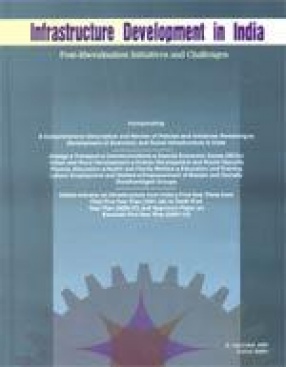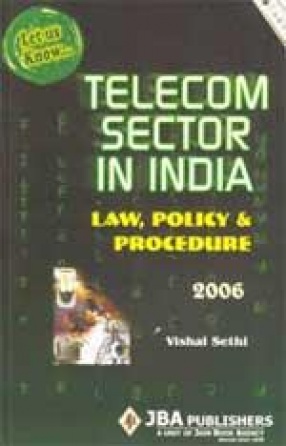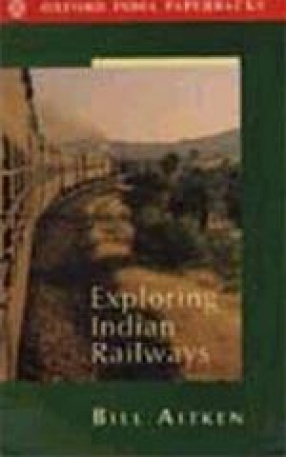Infrastructure Development in India: Post-Liberalisation Initiatives and Challenges
Synopsis
Availability of adequate, efficient and affordable infrastructural facilities, both economic and social, constitutes the core of development strategy and efforts. In the absence of infrastructure services, enterprises are forced to seek higher cost alternatives which impact profits and production levels adversely. The demand for infrastructural services has increased rapidly after industrial liberalisation of the Indian economy. Unfortunately, infrastructural bottlenecks remain the biggest stumbling block of industrial progress in the country. By their very nature, infrastructure projects involve huge initial investments, long gestation periods and high risk. The present work explains and examines problems and inadequacies of various sectors of economic and social infrastructure in India. Changes in infrastructure policy and new institutional arrangements for infrastructure development are also set forth. The book is organised into five parts. Part I containing chapter 1 is introductory in nature and explains the issues and policies involved in infrastructure development. Part II is devoted to economic infrastructure and consists of the following chapters. Chapter 2 describes the inadequacies, recent achievements and potential of India's energy sector. Chapter 3 is devoted to India's transport sector, viz. railways, roads, ports, and civil aviation. Chapter 4 focuses on telecommunications in which India has made creditable progress in recent years. Chapter 5 covers Special economic Zones (SEZs) and controversles related to them. Chapter 6 deals with urban and rural infrastructure. Chapter 7 explains tax incentives for infrastructure development in India. Part III deals with Social infrastructure and contains the following chapters. Chapters 8 is introductory in nature, explaining the various concepts associated with social development of a country. Chapter 9 explains incidence of poverty, its causes and government measures to reduce it. Chapter 10 covers the crucial area of health and family welfare. Chapter 11 is devoted to programmes of education, with focus on elementary education. Chapter 12 deals with labour force and employment. Chapter 13 examines issues related to labour welfare. Chapter 15 focuses on empowerment of socially disadvantaged groups. Part IV contains edited extracts on infrastructure from India's Five Year Plans from First Five Year Plan (1951-56) to tenth Five year Plan (2002-07) and Approach Paper to Eleventh Five Year Plan (2007-12). Part V contains 5 Appendices which provide relevant material on the subject.
Read more
104.40
93.96
$
116.00 $
Free delivery Wolrdwidе in 10-18 days
Ships in 1-2 days from New Delhi
Membership for 1 Year $35.00
Get it now and save 10%
Get it now and save 10%
BECOME A MEMBER
Books by the same authors









Bibliographic information
K. Narinder Jetli